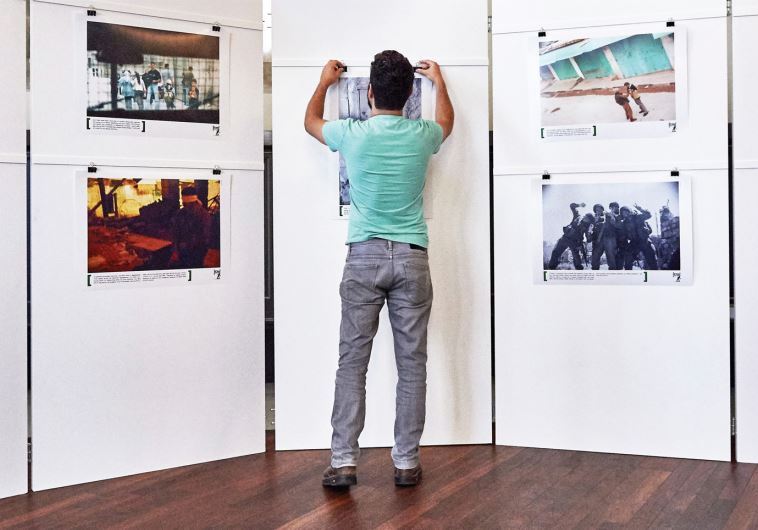Breaking the Silence: Slandering Israel or recognizing free speech?
Allegations by the Breaking the Silence group of misdeeds by IDF soldiers have clearly struck a nerve.
 Alon Sahar hangs a photograph at a BtS exhibition at the Kulturhaus Helferei in Zurich, June 3(photo credit: MICHAEL BUHOLZER / AFP)
Alon Sahar hangs a photograph at a BtS exhibition at the Kulturhaus Helferei in Zurich, June 3(photo credit: MICHAEL BUHOLZER / AFP)